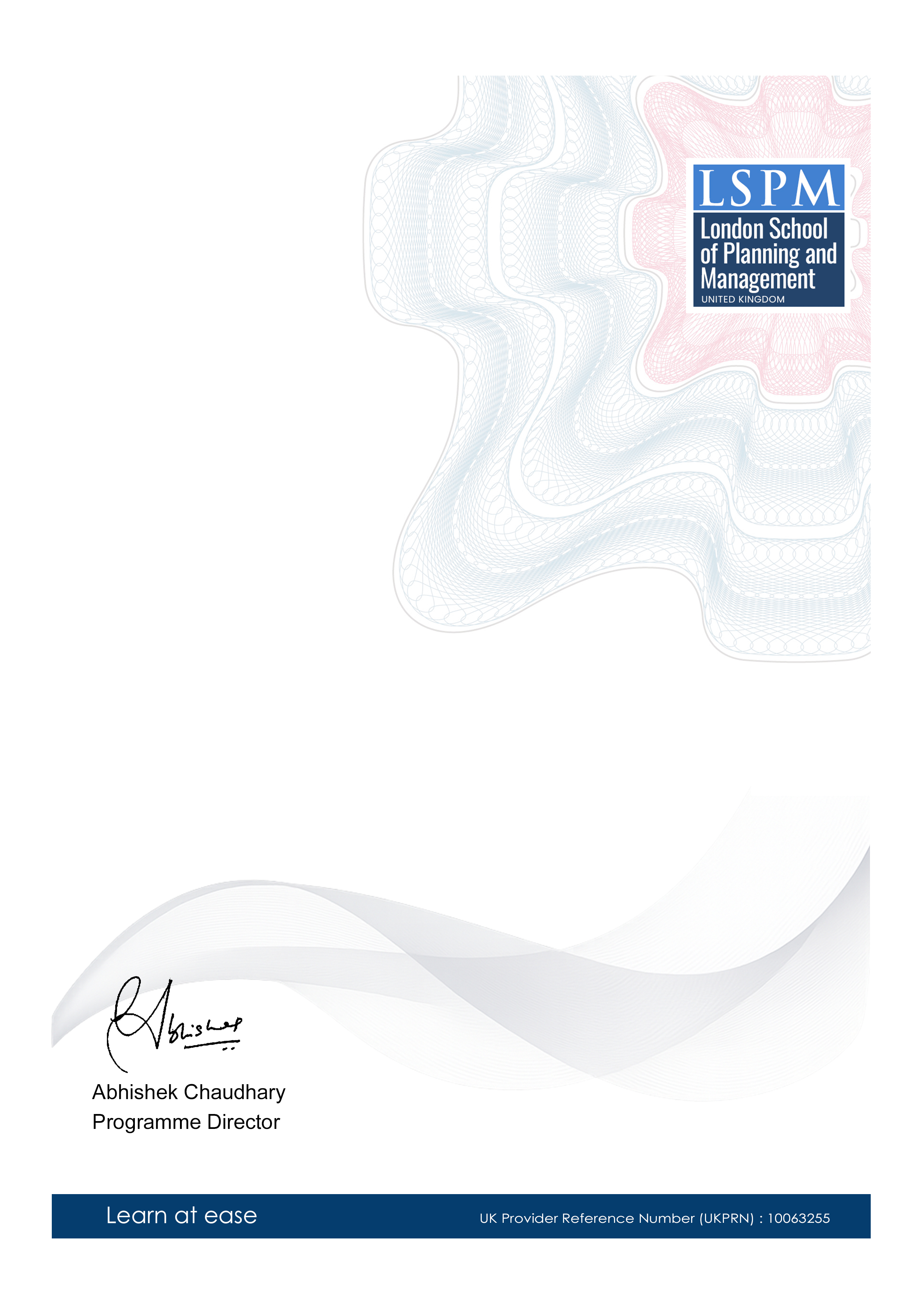Certificate Programme in Introduction to Multi-Material 3D Printing Innovations
-- viewing nowThe Certificate Programme in Introduction to Multi-Material 3D Printing Innovations is a comprehensive course designed to equip learners with essential skills in the rapidly evolving field of 3D printing. This programme emphasizes the use of multi-material 3D printing, a cutting-edge technology that enables the creation of complex and functional objects with diverse materials.
4,835+
Students enrolled
GBP £ 149
GBP £ 215
Save 44% with our special offer
About this course
100% online
Learn from anywhere
Shareable certificate
Add to your LinkedIn profile
2 months to complete
at 2-3 hours a week
Start anytime
No waiting period
Course details
• Introduction to 3D Printing
• Multi-Material 3D Printing: Overview and Advantages
• Types of Multi-Material 3D Printing Technologies
• Materials for Multi-Material 3D Printing
• Design Considerations for Multi-Material 3D Printing
• Case Studies of Multi-Material 3D Printing Innovations
• Software Solutions for Multi-Material 3D Printing
• Post-Processing Techniques for Multi-Material 3D Printed Parts
• Challenges and Future Trends in Multi-Material 3D Printing
• Best Practices and Safety Measures in Multi-Material 3D Printing
Career path
Entry requirements
- Basic understanding of the subject matter
- Proficiency in English language
- Computer and internet access
- Basic computer skills
- Dedication to complete the course
No prior formal qualifications required. Course designed for accessibility.
Course status
This course provides practical knowledge and skills for professional development. It is:
- Not accredited by a recognized body
- Not regulated by an authorized institution
- Complementary to formal qualifications
You'll receive a certificate of completion upon successfully finishing the course.
Why people choose us for their career
Loading reviews...
Frequently Asked Questions
Skills you'll gain
Course fee
- 3-4 hours per week
- Early certificate delivery
- Open enrollment - start anytime
- 2-3 hours per week
- Regular certificate delivery
- Open enrollment - start anytime
- Full course access
- Digital certificate
- Course materials
Get course information
Earn a career certificate

